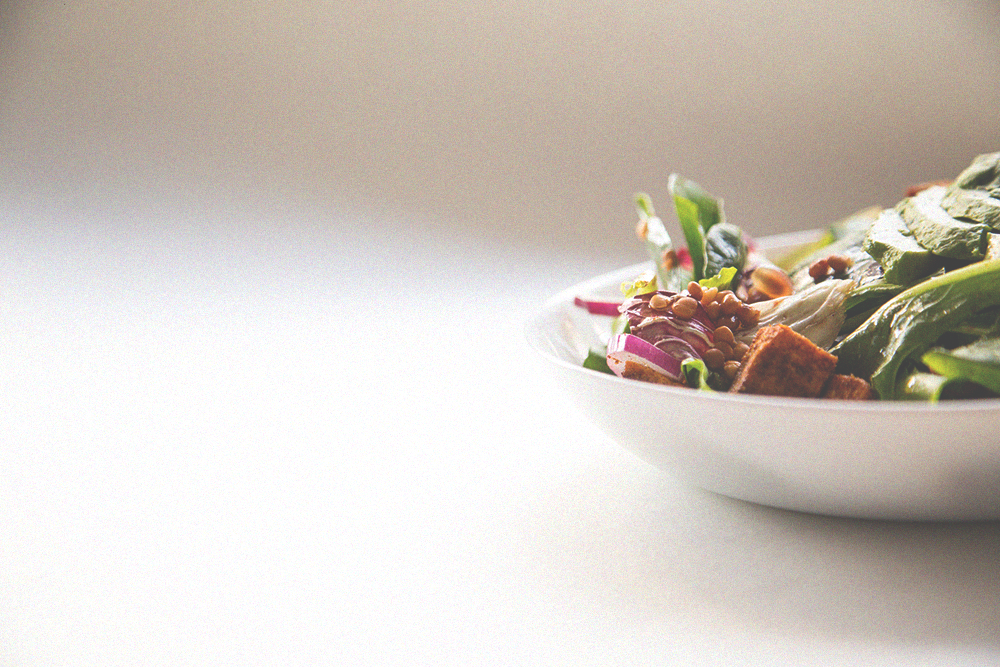Unless you enjoy a life of restriction, overcomplicated diet rules is not morally equivalent to health and happiness. Here are 3 questions to ask yourself to begin defining what you value the most in life.
BY: HALEY GOODRICH, RD, LDN
Many people make the assumption that a ‘healthy’ person implies one who lives by a set of dogmatic diet rules. Just like a Starbucks drink, they expect some complicated definition of “a non-GMO, soy-free, Paleo pescatarian who alternates between Beach Body shakes and Whole 30 every month.”
But what if being healthy simply means someone who says:
“I eat all foods that brings me joy and satisfaction”?
Rigid labeling is what keeps someone feeling stuck from actually experiencing life. Ironically, done in the name of health, labeling the way you eat is a fancy way of promoting disordered eating behaviors. Obsessive behavior in pursuit of a healthy diet and having to label your eating patterns actually describes the term orthorexia, which can often can be the gateway to a pathological eating disorder.
If this is you, you are not being judged or shamed. I too once thought I needed to make my plate as perfect as possible. I thought if I ate plates of steamed broccoli and skinny brownies, I would look like a nutrition God and all my body image struggles would go away.
To be clear, I’m not morally superior for having no eating labels, but simply wanted to offer the idea that it’s ok to have options. While removal of diet labels to uncover your intuitive eating abilities isn’t the only path to achieve health and happiness, healthy living certainly doesn’t need to be a strictly linear approach.
It begins by having self-compassion and the courage to say no to our society’s diet culture to become your healthiest self.
A critical component of having a healthy relationship with food is to be a confident eater among all of the diet-y talk. This means staying true to your values and questioning what’s triggering you when other people are constantly talking about their food rules. Here are 3 questions to ask yourself to bridge awareness back to your values:
DOES SOMEONE’S ELSE’S DIET MAKE YOU FEEL WORSE ABOUT YOURSELF?
When you feel triggered by the restrictive food conversation around you, notice if it makes you feel better or worse about yourself. Feeling worse is a red flag that this food behavior probably doesn’t align with your nutrition values. Your nutrition values should reflect behaviors that make you a happier, healthier person who thrives in life. For me, it’s the ability to feel free, spontaneous and flexible in my food choices.
DOES YOUR STYLE OF EATING HAVE RULES?
As we know, rules equal more rigidity and restriction, and less flexibility and joy. A great question to contemplate is, what have eating rules done for your mental health in the past?
Take the time to reflect back on this time in your life. Oftentimes, most will express how unhappy they were. Their brain space was completely preoccupied with food and experienced a lot of emotional pain. Therefore, could the restrictions actually be making you more symptomatic?
ARE YOU SEARCHING FOR VALIDATION OR JUSTIFICATION THROUGH LABELING THE WAY YOU EAT?
If you listen for it, you will notice that people often reflect their insecurities when they talk. Diet and exercise talk can have a hidden agenda hoping for praise, acceptance, a sense of control in a chaotic life, or validation from others that they are “healthy” enough.
That being said, the question to ask yourself is: do you believe eating a specific way will make you a better, more valuable person?
A healthy relationship with food should not be influenced or defined by anyone else. Rather, food should be particular and personal. Think beyond needing to label the way you eat and focus on what your body needs the most each day.
Adapted from the original article.
HEADER IMAGE: HERMES RIVERA
Haley Goodrich, RD, LDN is a private practice Registered Dietitian based in Pittsburgh, PA inspiring others to have a healthy relationship with food. Specializing in disordered eating, intuitive eating, and digestive health, Haley’s mission is to show that healthy doesn’t have to be restrictive or defined by how you compare to others. To stay inspired to be your healthiest you, visit Haley at INSPIRD Nutrition.

